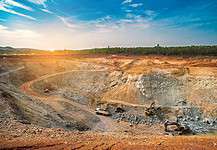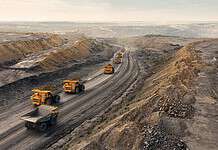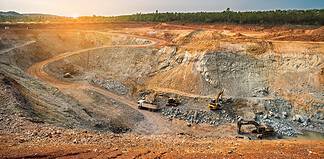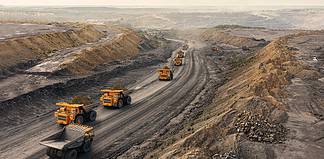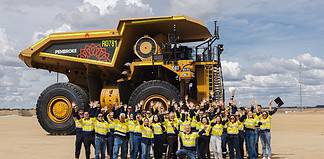 DEBATE regarding Queensland’s controversial Abbot Point Port expansion has escalated, with the Labor and the Greens jointly acting on claims environmental protection laws were misused during the port’s approvals process.
DEBATE regarding Queensland’s controversial Abbot Point Port expansion has escalated, with the Labor and the Greens jointly acting on claims environmental protection laws were misused during the port’s approvals process.
In early March, the Senate passed a non-binding motion calling for Federal Environmental minister Greg Hunt to withdraw his approval for the project.
The port expansion project, which would see the addition of a second wharf and ship loader as well as an additional onshore stockyard and machines, requires the dredging of 3 million tonnes of material at the deepwater port, south of Bowen on Queensland’s northern coast.
Under the approved plans, the dredged would be dumped 25km off Abbot Point within the World Heritage listed Great Barrier Reef Marine Park (GBRMP).
Mr Hunt released the GBRMP strategic assessment documents to the public after calls for Freedom of Information to be enacted.
The documents noted concerns by the Great Barrier Reef Marine Park Authority (GBRMP Authority) regarding the potential for aquatic damage from the development, prompting it to only provide approval subject to 47 conditions.
Those opposed to the plan allege the Commonwealth’s Environment Protection and Biodiversity Conservation Act was amended to enable governmental approval of major mine and port developments without considering expert advice.
However, GBRMP Authority chairman and chief executive Russell Reichelt defended the port expansion and the authority’s approval.
“The debate about Abbot Point has been marked by considerable misinformation, including claims about ‘toxic sludge’, dumping coal on the reef and even mining the reef,” Mr Reichelt said.
“These claims are simply wrong.
“[Dredge material will be disposed of] within the Marine Park, about 40km from the nearest offshore reef.
“The material will only be allowed to be placed in a defined 4 square kilometre site, free of hard corals, seagrass beds and other sensitive habitats.
“We reached the conclusion that, with 47 stringent conditions in place, [the expansion] could be done in a way that makes us confident there will be no significant impact on the reef’s world heritage values.
“Our conditions are in addition to those already imposed by the federal government in
prior approvals.”
A spokesman for Mr Hunt said the project was approved in accordance with national laws and subject to some of the “toughest conditions and safeguards in Australian history”.
However, Greens Senator Larissa Waters stated, “the Senate and community are sending a strong message to the Abbott government that dumping millions of tonnes of sludge into the Great Barrier Reef is unacceptable”.
“We’re seeing offsets being used more and more as an excuse for governments to tick and flick environmentally damaging projects for the big mining companies, [but] often these offsets are so unrealistic that they’re impossible to deliver on,” Ms Waters said.
“The Abbot Point coal port is a classic example, with the Environment minister telling us all the damage will be offset, but [freedom of information] revealing that the [GBRMP Authority] found that would be
impossible, as the damage was simply too great.
“Our Great Barrier Reef should not be treated as a dump ground for dredge sludge, simply because it’s cheaper for the big mining companies than disposing on land.”The Senate’s last minute case against
the project was strengthened by chance in late February, when major project backer
Anglo American withdrew its funding plans, referencing spending cuts and depressed coal prices; property and construction giant Lend Lease then withdrew its contract bid for the multi-billion dollar project.
Anglo American is the latest producer to step away from the project after Rio Tinto and BHP Billiton both confirmed in late 2013 they would not require the extra capacity the expanded port would provide.
The Queensland Government said it remained confident the project would go ahead, though it stated that it understood the need for companies to review spending in light of changing market conditions.
Indian conglomerate GVK, in partnership with Gina Rinehart’s Hancock Coal, is reportedly still pushing ahead with plans for extra terminals at the port.
If the expansion goes ahead, Abbot Point will become the world’s largest coal export facility.


